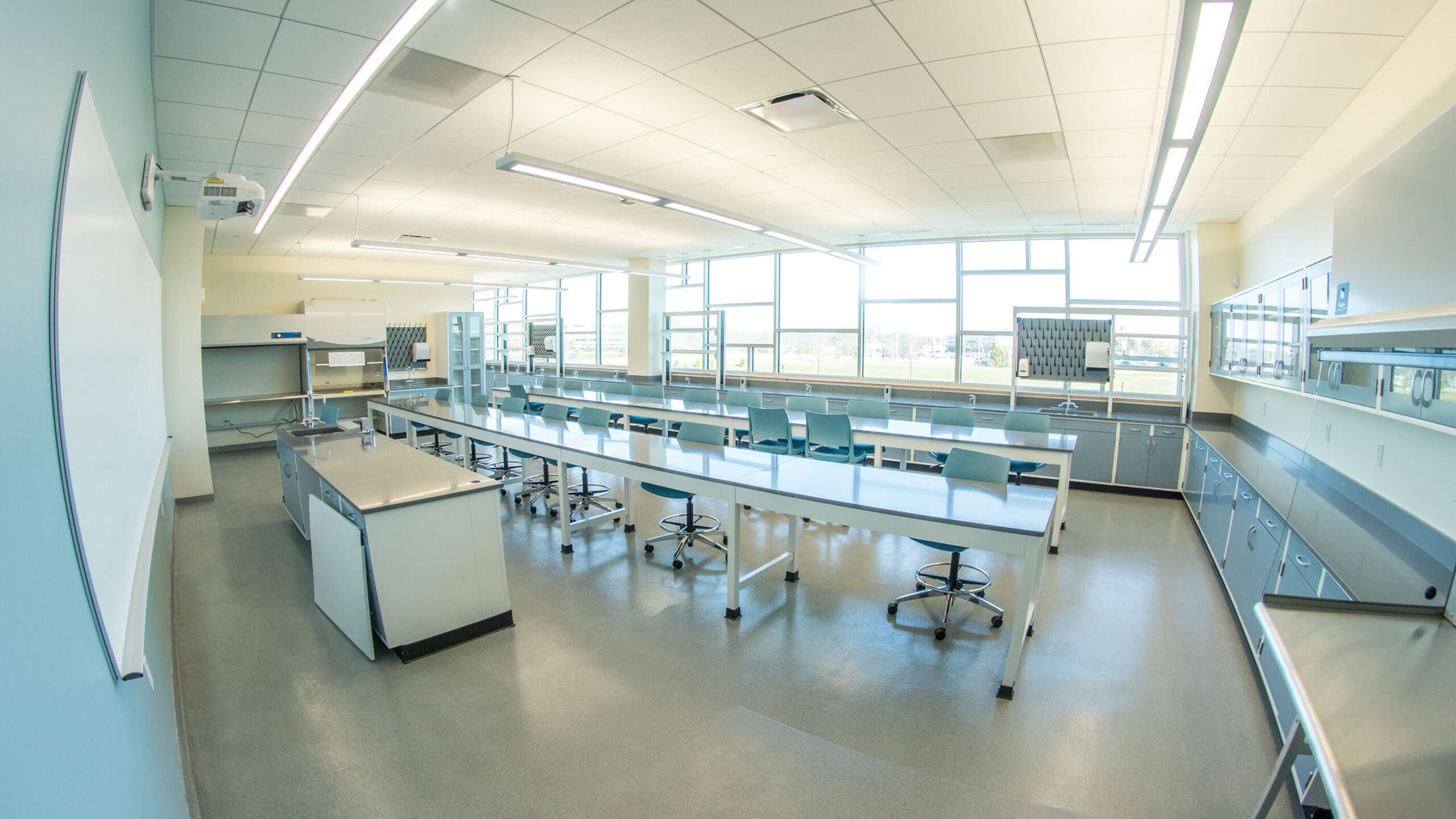New at WilmU: The Bachelor of Science in Biology

More Than Just Microscopes
Wilmington University’s new Biology degree offers research experience and creates career opportunities.
The state of Delaware boasts a rich history of scientific innovation, from DuPont to today’s tech startups. About 80 percent of the U.S. pharmaceutical industry is headquartered in the Delaware Valley. And employers throughout the Mid-Atlantic posted nearly 10,000 jobs requiring natural science backgrounds in a recent year.
Clearly, scientific skills are in demand on the region’s job market. Wilmington University wants to prepare students to meet this need — and the future — with its new Bachelor of Science in Biology.
The program enables high school graduates to explore the diversity and intricacy of life on Earth through hands-on studies in the state-of-the-art laboratory facilities of the University’s new Brandywine site and at our close-to-home classrooms. Taught by experienced professionals, the curriculum has been designed to deliver the foundations of biology, chemistry, physics and mathematics, as well as training in lab skills and data sciences.
The University’s partnership with NASA (through the Delaware Space Grant Consortium) and its National Institutes of Health-funded research (through the Delaware IDeA Networks of Biomedical Research Excellence program) provide resources through which undergraduates may take part in active research. Plus, WilmU’s affiliations with local corporations open the door to exciting internship and cooperative education opportunities.
“Wilmington University’s Bachelor of Science in Biology has been designed to serve the future by putting our students at the forefront of cutting-edge research, tools, and concepts,” says Dr. Milton Muldrow Jr., the creator and program chair of the Biology degree and an assistant professor in the College of Arts and Sciences.
The affordable, eight-semester degree program — which can be earned with additional concentrations in biotechnology or forensic science — prepares graduates for careers in the natural sciences as well as for advanced degrees.
Possible employment opportunities for Biology graduates include laboratory technician, forensic technician, research coordinator or manager, scientific technical writer, government analyst, elementary or secondary school educator (with additional certification), or other roles in the region’s biotechnology and biomedical firms, healthcare facilities and nonprofit organizations.
The National Science Foundation estimates that 80 percent of all jobs created in the next decade will require some type of science, technology, engineering or mathematical training. The Biology program offers students an accessible, flexible, career-oriented option for building their résumés and embracing a professional network in an ever-growing field.
—David Bernard
For more information, visit wilmu.edu/wilmuworks.



